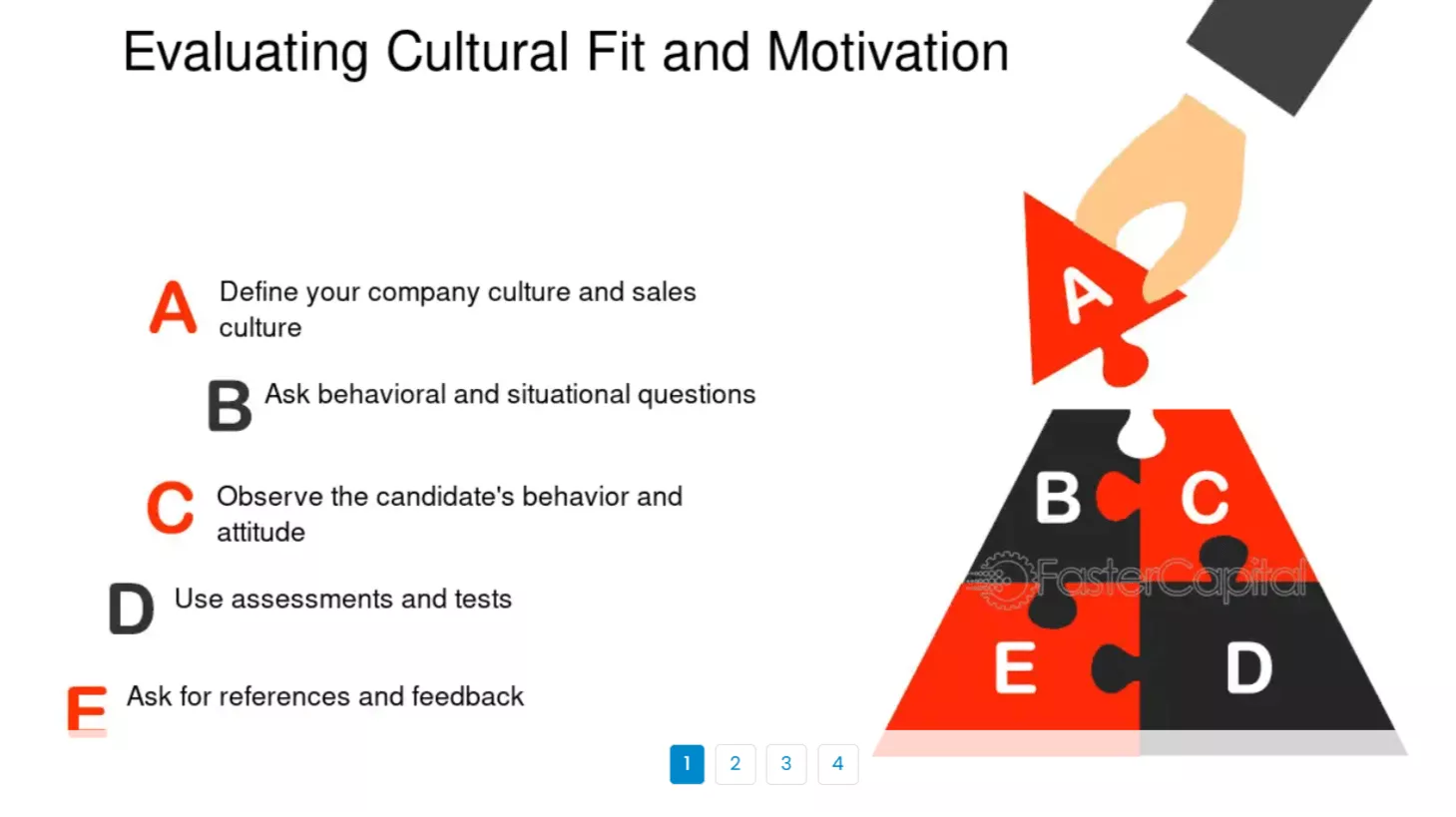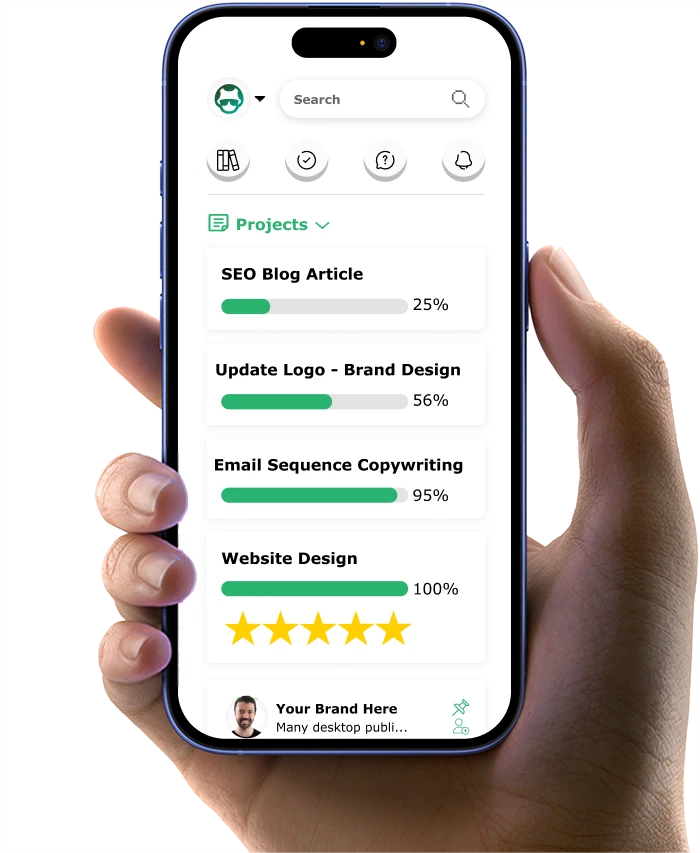The Professional's Playbook: 9 Proven Ways to Scale Your Firm While Preserving Team Sanity

You've hit that critical growth stage in your professional service firm - exciting, but also terrifying. Each new client represents both opportunity and a potential tipping point for your already stretched team.
Sound familiar? You're not alone. According to Deloitte's Professional Services Industry Outlook, nearly 70% of professional service firms cite talent management and work-life balance as their top challenges during growth phases.
I've walked this path myself and discovered something crucial: sustainable growth doesn't require sacrificing your team's sanity. In fact, the opposite is true - your most valuable scaling asset is a team operating at their optimal capacity, not their breaking point.
In this article, you will learn how to scale your firm effectively while keeping your team happy and engaged.
Here’s what you can expect:
- Discover practical time management techniques that can help you and your team work more efficiently.
- Learn about the right technology that can simplify your daily operations.
- Find out how to build a strong team that supports your growth goals.
- Explore ways to nurture client relationships that lead to lasting loyalty.
- Understand the importance of feedback and how it can enhance your services.
Let’s dive into these strategies and find out how you can achieve sustainable growth without sacrificing your team’s well-being...
Scaling Tip #1: Prioritize Time Management
Effective time management is a critical component of scaling strategies for professional service firms. When you prioritize time management, you create an environment where both you and your team can thrive. According to research, organizations that implement systematic time management frameworks can significantly boost efficiency during their first year of adoption.
Consider this: effective time management isn't just about personal productivity. A study in Harvard Business Review found that companies implementing structured workflows reduced time wasted on administrative tasks by nearly 30%. The key is implementing systems that handle the mental load of planning, allowing your specialists to focus entirely on execution and quality delivery.
By adopting techniques like time-blocking, you can allocate specific time slots for different tasks, ensuring that important projects receive the attention they deserve. According to a study by Vorecol, firms that utilize time management tools can boost their productivity by as much as 25%.
Moreover, leveraging digital calendars and task management apps can streamline your workflow. These tools not only help you stay organized but also facilitate better communication among team members. As you implement these strategies, you'll notice that a well-structured schedule allows for greater flexibility and reduces the stress associated with last-minute tasks. This approach not only enhances productivity but also fosters a healthier work-life balance for you and your team.
Key Takeaways
- Implementing time management strategies can boost productivity significantly.
- Using tools like time-blocking and task management apps helps maintain organization.
- A well-structured schedule promotes flexibility and reduces stress.
Next, let’s explore how leveraging technology can further enhance your firm's efficiency and growth.
Scaling Tip #2: Leverage Technology
In today's fast-paced business environment, leveraging technology is essential for scaling strategies in professional service firms. By implementing the right technological solutions, you can streamline operations and significantly enhance productivity. A study from Harvard Business Review indicates that over 90% of workers surveyed reported that automation solutions increased their productivity.
Project management platforms and automation software aren't just fancy tools - they're essential efficiency drivers. According to research from McKinsey, organizations that effectively implement automation technologies see productivity improvements of 20-25%. When your specialized talent is freed from repetitive tasks, they can focus on the high-value work that actually drives your firm forward.
Moreover, technology facilitates better data management, allowing you to track performance metrics and make informed decisions based on real-time data. This capability not only enhances operational efficiency but also provides valuable insights into your firm's performance. As you integrate these tools into your workflow, you'll find that your team can focus more on strategic initiatives rather than getting bogged down by repetitive tasks. In essence, leveraging technology empowers your firm to scale effectively while maintaining high-quality service delivery.
Here is an example of legal practice software with robust document management features:
Key Takeaways
- Implementing automation tools can lead to significant productivity increases.
- Project management platforms enhance task management and team collaboration.
- Better data management allows for informed decision-making and improved performance tracking.
Next, let's discuss the importance of building a strong team to support your growth initiatives.
Scaling Tip #3: Build a Strong Team
Building a strong team is a fundamental aspect of scaling strategies for professional service firms. When you prioritize team development, you create a foundation that supports growth and innovation. Research from PeopleThriver indicates that companies with engaged employees can see productivity levels rise by as much as 22%. This statistic underscores the importance of fostering a positive work environment where team members feel valued and motivated.
So, how can you cultivate such an environment? It starts with hiring the right talent. Look for individuals who not only possess the necessary skills but also align with your firm's values and culture. Firms that invest in cultural fit during the hiring process experience lower turnover rates and higher employee satisfaction.
Additionally, fostering a supportive team culture is crucial. Encourage open communication, collaboration, and professional development opportunities. When team members feel supported, they are more likely to contribute innovative ideas and work effectively together. As you build your team, remember that creating a strong foundation not only enhances performance but also positions your firm for sustainable growth in the long run.
Consider how a comprehensive talent solution approaches team building differently than traditional hiring. By accessing pre-vetted professionals who already understand your industry standards, you eliminate the typical onboarding challenges that often delay project timelines. This approach gives you flexibility to scale services without the overhead commitment, particularly valuable for professional service firms with fluctuating project loads.
Key Takeaways
- Engaged employees can boost productivity levels significantly.
- Hiring for cultural fit leads to lower turnover and higher satisfaction.
- A supportive team culture fosters innovation and collaboration.
Next, let’s explore how focusing on client relationships can drive sustainable growth for your firm.
Scaling Tip #4: Focus on Client Relationships
Focusing on client relationships is essential for the sustainable growth of professional service firms. When you nurture these relationships, you not only foster loyalty but also create opportunities for referrals and repeat business. Research from Deloitte shows that customer-centric companies are 60% more profitable compared to companies that are not focused on the customers, which is crucial for long-term success.
Wondering how to foster these important relationships? Mastering communication is the essential first step. Regularly engaging with your clients through check-ins, feedback requests, and personalized updates can make a significant difference. Additionally, firms that prioritize client communication see improved satisfaction and loyalty.
Here is an example of how to create feedback opportunities through conversations:
Beyond basic CRM implementation, consider how systematizing your client communication creates consistency without sacrificing personalization. A structured approach to relationship management allows you to maintain high-touch interactions while scaling your client base. The key is developing a clear communication calendar handled by dedicated relationship specialists rather than overburdening your technical experts with administrative follow-ups.
Key Takeaways
- Nurturing client relationships enhances loyalty and retention rates.
- Effective communication is key to building strong client connections.
- CRM systems help manage interactions and personalize client experiences.
Next, let’s discuss how implementing feedback loops can further improve your services and reduce burnout.
Scaling Tip #5: Implement Feedback Loops
Implementing feedback loops is a vital strategy for professional service firms aiming to enhance their services and reduce burnout among team members. By regularly gathering feedback from both clients and employees, you can identify areas for improvement and make informed decisions. According to Desk 365, organizations that actively seek feedback can improve their service quality by up to 10%, leading to higher client satisfaction and retention.
So, how can you effectively implement feedback loops? Start by establishing regular check-ins with your clients to solicit their opinions on your services. This not only shows that you value their input but also helps you address any concerns proactively. Research suggests that companies regularly gathering client feedback experience notable increases in customer loyalty and satisfaction levels.
The challenge isn't usually collecting feedback - it's implementing it without creating additional work. Smart firms create systems where feedback triggers specific workflows automatically. For example, when a client mentions interest in additional services, a specialized marketing team can immediately prepare customized materials rather than adding this to your practitioners' already full plates. This approach ensures opportunities aren't missed while protecting your team's focus.
Additionally, consider using surveys and feedback platforms to gather insights from your team. This approach allows employees to share their thoughts on workload, processes, and overall job satisfaction. When team members feel heard, they are more likely to be engaged and productive. By creating a culture of continuous improvement through feedback, you not only enhance service delivery but also contribute to a healthier work environment, reducing the risk of burnout.
Key Takeaways
- Regular feedback loops can improve service quality significantly.
- Engaging clients through feedback shows you value their input and can enhance loyalty.
- Gathering employee feedback fosters engagement and reduces burnout.
Next, let’s explore how setting clear boundaries can contribute to maintaining work-life balance within your firm.
Scaling Tip #6: Set Clear Boundaries
Setting clear boundaries is essential for maintaining a healthy work-life balance in professional service firms. When you establish these boundaries, you create an environment where both you and your team can manage workloads effectively, thus reducing the risk of burnout. Data suggests that workers who implement defined boundaries around their professional responsibilities enjoy significant boosts in workplace satisfaction and measurably decreased stress metrics.
Effective boundary implementation begins by defining work hours and ensuring your team understands the importance of disconnecting after hours. Encourage employees to set specific times for work-related tasks and personal activities. According to research from Vorecol, firms that promote a healthy work-life balance experience 41% lower absenteeism rates.
Consider implementing a 'boundary toolkit' for your team - pre-approved email templates for after-hours client requests, standardized processes for urgent work, and clear escalation procedures. When everyone operates from the same playbook, individual team members don't bear the emotional burden of creating boundaries on their own. Supporting these boundaries becomes easier when you have flexible resources to handle overflow work during peak periods, preventing the need to choose between client satisfaction and team wellbeing..
Key Takeaways
- Establishing boundaries can significantly improve job satisfaction and reduce stress.
- Encouraging defined work hours helps employees disconnect and recharge.
- Flexible working arrangements support personal responsibilities and enhance productivity.
Next, let’s explore how continuous learning and adaptation can further drive your firm's success.
Scaling Tip #7: Continuous Learning and Adaptation
Continuous learning and adaptation are crucial for the long-term success of professional service firms. In today’s rapidly changing business landscape, staying updated with industry trends and best practices can significantly enhance your firm’s competitiveness. Research indicates that organizations emphasizing continuous learning experience substantial performance improvements, establishing it as a critical growth strategy.
So, how can you foster a culture of continuous learning within your firm? Start by encouraging your team to pursue professional development opportunities, such as workshops, online courses, and industry conferences. According to a study by Build Empire, companies with robust training programs see a 24% higher profit margin compared to those without such programs.
Additionally, create an environment where knowledge sharing is encouraged. Regular team meetings to discuss new insights or lessons learned can foster collaboration and innovation. When team members share their experiences and knowledge, it not only benefits individual growth but also strengthens the overall capability of your firm. By embracing continuous learning and adaptation, you position your firm to navigate challenges effectively and seize new opportunities as they arise.
Key Takeaways
- Ongoing learning can significantly improve your firm’s performance.
- Encouraging professional development enhances job satisfaction and retention.
- Knowledge sharing fosters collaboration and strengthens team capabilities.
Next, let’s explore how monitoring workload and performance can help prevent burnout and ensure efficiency.
Scaling Tip #8: Monitor Workload and Performance
Monitoring workload and performance is essential for preventing burnout and ensuring efficiency in professional service firms. By keeping track of how much work your team is handling, you can identify potential stress points and take proactive measures to address them. Research indicates that organizations that regularly monitor employee workloads experience reduction in burnout rates, leading to a more engaged and productive workforce.
"Implement a workload visibility system using simple traffic light indicators - green for capacity available, yellow for approaching capacity, red for overloaded. According to Gallup research, teams with transparent workload management see 23% higher productivity and 18% lower turnover. This creates psychological safety for team members to signal when they need support.
Additionally, encourage regular one-on-one check-ins with team members to discuss their current workload and any challenges they may be facing. This approach not only helps you gauge performance but also shows your team that their well-being is a priority. By monitoring workloads and performance effectively, you create an environment where employees can thrive, ultimately enhancing your firm’s overall productivity and success.
Key Takeaways
- Regularly monitoring workloads can significantly reduce burnout rates.
- Project management tools improve assignment balance and team collaboration.
- One-on-one check-ins show that employee well-being is a priority.
Next, let’s explore how encouraging self-care practices can contribute to long-term sustainability in your firm.
Scaling Tip #9: Encourage Self-Care Practices
Encouraging self-care practices is vital for maintaining the long-term sustainability of your professional service firm. When you promote self-care among your team, you not only enhance their well-being but also contribute to a more productive and engaged workforce. Research shows that employees who engage in regular self-care activities report a 40% increase in job satisfaction and are less likely to experience burnout.
What truly works is removing the structural barriers to self-care. Rather than simply encouraging vacation time, create systems where work is properly documented and transferable to specialized marketing teams. When your marketing operations and client communications can continue smoothly in someone's absence, you eliminate the stress that prevents many professionals from taking much-needed breaks. This requires developing standardized processes that aren't dependent on any single team member.
So, how can you effectively encourage self-care within your firm? Start by promoting a culture that values work-life balance. Encourage your team to take regular breaks, utilize their vacation time, and participate in wellness programs. According to a study by Vorecol, organizations that prioritize employee well-being often experience a 19% increase in productivity and a 21% higher profitability compared to those that do not prioritize employee well-being.
Additionally, consider providing resources for mental health support and wellness initiatives, such as yoga classes or stress management workshops. By fostering an environment that supports self-care, you empower your team to prioritize their health, which leads to improved performance and a more positive workplace culture.

Key Takeaways
- Promoting self-care enhances employee well-being and productivity.
- A culture valuing work-life balance leads to higher job satisfaction.
- Resources for mental health support can improve workplace culture.
Next, let’s summarize the key strategies discussed and how they contribute to the overall success of your firm.
CONCLUSION
Here's the truth about scaling your professional service firm: your greatest competitive advantage isn't working your team harder - it's creating systems that maximize their specialized expertise while eliminating unnecessary strain.
The firms seeing the most sustainable growth have implemented:
- Strategic time-blocking systems to reduce context-switching
- One unified project management tool with clear ownership
- Structured 15-minute daily team check-ins
- Automated client feedback loops with specific response triggers
- Mandatory break protocols enforced at the leadership level
The common thread? They've all found ways to separate high-value expert work from necessary but time-consuming operational tasks.
If you're ready to implement these strategies but find yourself drowning in day-to-day marketing execution, you're not alone. The most successful firms recognize when specialized support makes more sense than stretching internal resources.
If you want to get your marketing work done for your business (or for your clients’), then you HAVE to learn more how you can delegate unlimited marketing projects & tasks without the headaches of hiring. Download this free guide: 33 Examples of Marketing Projects You Can Delegate to Growbo
We'd love to hear which of these strategies resonates most with your current challenges - share your thoughts in the comments below.
Keep Growin,' Stay Focused,
Image Credits:
1 - https://www.paymoapp.com/blog/time-tracking-consultants/
2 - https://www.onthemap.com/blog/best-document-management-systems/
3 - https://fastercapital.com/topics/evaluating-cultural-fit-and-motivation.html/1
4 - https://www.touchpoint.com/blog/how-to-ask-customers-for-feedback/
5 - https://www.runn.io/blog/work-schedules
6 - https://educate360.com/blog/benefits-of-continuous-learning-and-development/
7 - https://www.linkedin.com/posts/legal-education-society-of-alberta_are-you-a-rural-or-small-firm-practitioner-activity-7270508483014225921-VB5f/





















